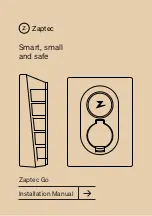
When Should an Air Bag Inflate?
The driver’s and right front passenger’s frontal air bags
are designed to inflate in moderate to severe frontal
or near-frontal crashes. But they are designed to inflate
only if the impact speed is above the system’s
designed “threshold level.”
If your vehicle goes straight into a wall that doesn’t
move or deform, the threshold level is about 9 to 15 mph
(14 to 24 km/h). The threshold level can vary, however,
with specific vehicle design, so that it can be somewhat
above or below this range.
If your vehicle strikes something that will move or
deform, such as a parked car, the threshold level will be
higher. The driver’s and right front passenger’s frontal
air bags are not designed to inflate in rollovers, rear
impacts, or in many side impacts because inflation
would not help the occupant.
The side impact air bags are designed to inflate in
moderate to severe side crashes. A side impact air bag
will inflate if the crash severity is above the system’s
designed “threshold level.” The threshold level can vary
with specific vehicle design. Side impact air bags are
not designed to inflate in frontal or near-frontal impacts,
rollovers or rear impacts, because inflation would not
help the occupant. A side impact air bag will only deploy
on the side of the vehicle that is struck.
In any particular crash, no one can say whether an air
bag should have inflated simply because of the damage
to a vehicle or because of what the repair costs were.
For frontal air bags, inflation is determined by the angle
of the impact and how quickly the vehicle slows down
in frontal and near-frontal impacts. For side impact
air bags, inflation is determined by the location
and severity of the impact.
What Makes an Air Bag Inflate?
In an impact of sufficient severity, the air bag sensing
system detects that the vehicle is in a crash. For
both frontal and side impact air bags, the sensing
system triggers a release of gas from the inflator, which
inflates the air bag. The inflator, the air bag and
related hardware are all part of the air bag modules
inside the steering wheel, the instrument panel, and the
side of the front seatbacks closest to the door.
1-47
Summary of Contents for 2004 Seville
Page 5: ...These are some examples of symbols you may find on your vehicle v...
Page 6: ...NOTES vi...
Page 13: ...Put someone on it Get it up to speed Then stop the vehicle The rider doesn t stop 1 7...
Page 58: ...NOTES 1 52...
Page 112: ...NOTES 2 54...
Page 115: ...NOTES 3 3...
Page 116: ...Instrument Panel Overview 3 4...
Page 216: ...NOTES 3 104...
Page 272: ...Engine Compartment Overview When you open the hood you will see 5 12...
Page 394: ...NOTES 7 14...
















































